Back
Morning vs Night Brushing: Best for Your TeethSep 2
Sep 2
Morning vs night brushing is not just a simple choice—it changes how your mouth fights bacteria, plaque, and acid during the day and overnight. While both times matter, their benefits differ across age groups and lifestyles. In this article, we’ll explore the science of brushing timing, share dentist-backed advice, and explain how smart tools like BrushO make sticking to the habit easier.
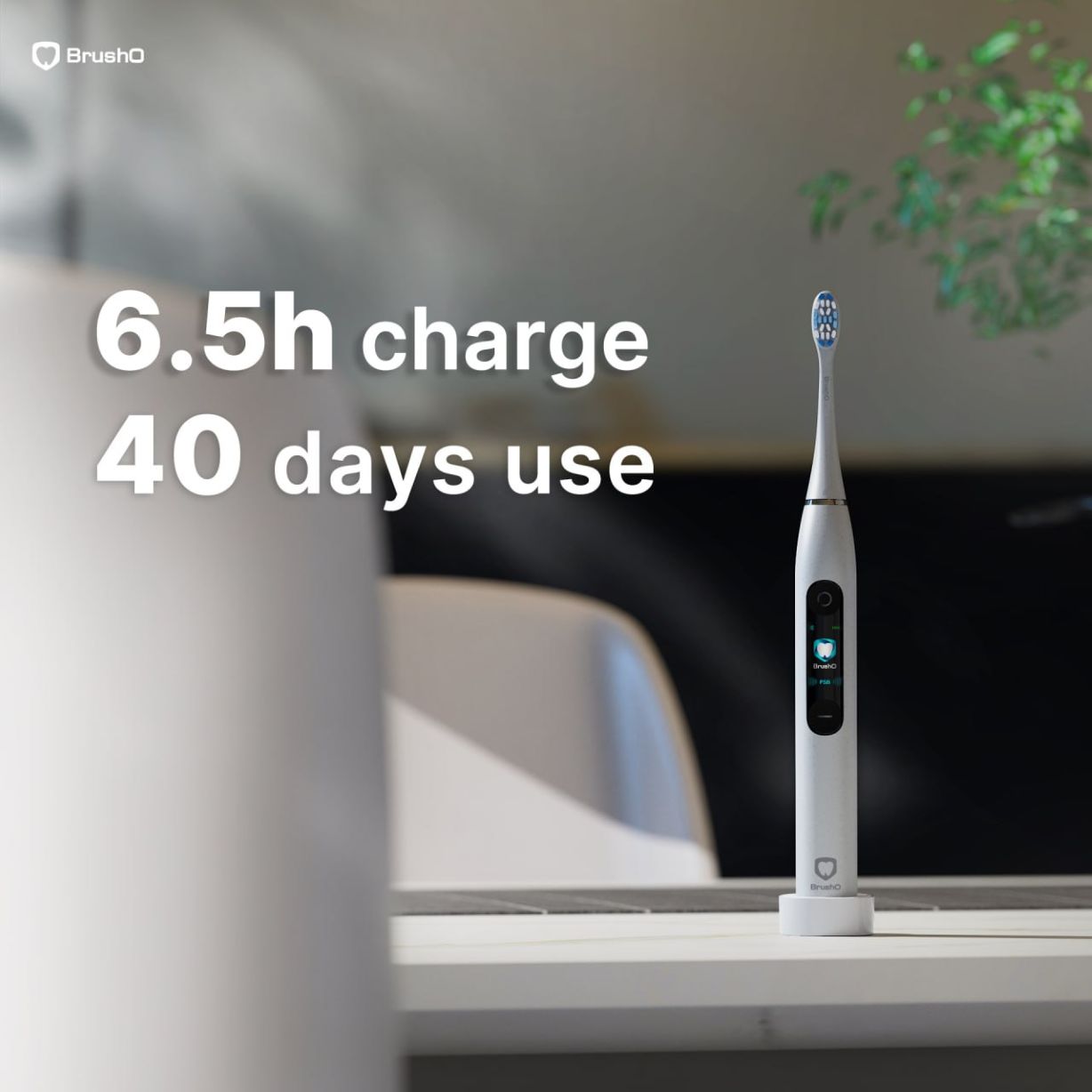
Why Brushing in the Morning Matters ☀️
Clears overnight buildup: Saliva drops when you sleep, bacteria multiply, and morning brushing removes this biofilm.
Fresh breath boost: Eliminates morning odor from bacterial sulfur compounds.
Pre-meal protection: Brushing before breakfast leaves a fluoride layer that shields teeth from acids in coffee, juice, or fruit.
Mental cue: Acts as a “wake-up signal,” anchoring your day in hygiene.
Why Brushing at Night Matters 🌙
Stops bacteria feasts: Food particles left behind are fuel for cavity-causing bacteria overnight.
Reduces gum problems: Night brushing lowers inflammation risks tied to gingivitis and periodontitis.
Protects enamel long-term: Leaving plaque on teeth overnight accelerates enamel wear and tartar buildup.
Pairs with flossing: Evening is the best time to floss, making brushing more effective.
Different People, Different Priorities
Kids 👧🧒
- Often forget brushing before bed—yet this is most important for preventing cavities in baby teeth.
- Parents should supervise brushing at night, even if kids brushed in the morning.
Working Adults 🏙️
- Coffee drinkers: Brushing before coffee prevents acid + stain penetration.
- Smokers or frequent snackers: Night brushing is non-negotiable to remove tar and sugars.
People with Braces 😬
- Night brushing is critical to clean around brackets and wires.
- A deep-clean mode on smart brushes helps cover hard-to-reach areas.
Seniors 👵👴
- Gum recession makes roots more exposed—so both morning (for freshness) and night (for decay prevention) are essential.
- Sensitive mode is often better tolerated.
Morning vs Night: A Quick Comparison
Aspect Morning Brushing ☀️ Night Brushing 🌙
Fresh breath Yes – reduces morning odor No major effect (already fresher at night)
Plaque removal Clears overnight bacteria Clears food particles & daily buildup
Enamel protection Fluoride shield before breakfast Stops acid attack during long sleep hours
Dentist priority Useful for freshness and protection Critical to prevent decay and disease
📌 If you must choose just one, dentists say night brushing is more important. But brushing twice a day remains the gold standard.
How BrushO Helps Build Habits 💡
Consistency is the challenge—not knowledge. The BrushO Smart Electric Toothbrush solves this with:
- AI-powered reminders: Nudges you to brush morning and night.
- brushing modes: Choose gentle in the morning, deep clean at night.
- Long battery life (45 days): Perfect for travel and busy routines.
- Brushing reports: Track streaks to keep motivation high.
With BrushO, brushing at both times becomes easy and sustainable.
FAQ: Morning vs Night Brushing
Q1: Should I brush before or after breakfast?
Dentists recommend before breakfast. If after, wait 30 minutes to protect enamel.
Q2: Is brushing once a day enough?
Not ideal. If only once, brushing at night is far more important.
Q3: Can I brush three times a day?
Yes, but don’t overbrush—gentle technique and a pressure sensor toothbrush prevent gum damage.
Morning vs night brushing—which matters more?
Morning brushing fights odor and preps teeth for the day, while night brushing protects against plaque and decay during long sleep hours. If you must choose, night brushing wins. But with smart tools like BrushO, maintaining both is effortless—and your teeth will thank you for it.
👉 Build better habits today with BrushO
👉 Learn more: Why Smart Toothbrushes Are the New Lifestyle Trend
Recent Posts

How to Disinfect Your Toothbrush
Keep your mouth clean by making sure your toothbrush is, too.

Why BrushO Offers Free Brush Heads
BrushO doesn’t just promise free brush heads for life — it rewards you for doing what’s best for your health: brushing daily.
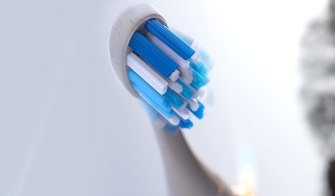
How to Reduce Dental Anxiety and Make Brushing Easier
Dental anxiety isn’t just about visiting the dentist—it can affect your daily oral hygiene, especially brushing. If brushing your teeth feels stressful, overwhelming, or even scary (especially for kids or those with sensory sensitivity), you’re not alone.
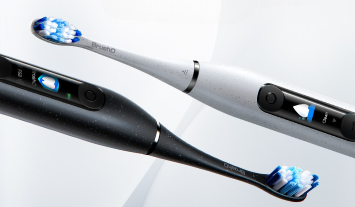
How to Master Smart Brushing with AI‑Powered Toothbrushes
Smart toothbrushes are transforming the way we care for our teeth.

How to Maximize Your Toothbrush Battery Life
Wondering why your electric toothbrush battery drains so quickly? Or how to make sure your AI-powered brush like BrushO performs at its best for years?
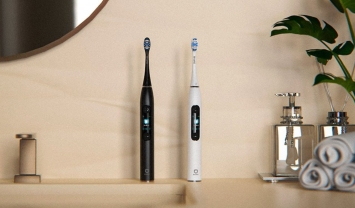
Are You Overpaying for a Toothbrush?
If your toothbrush costs a small fortune but doesn’t make your teeth feel cleaner, you might be paying more than you should. Here’s how to tell if you’re getting true value — and how to choose smarter.
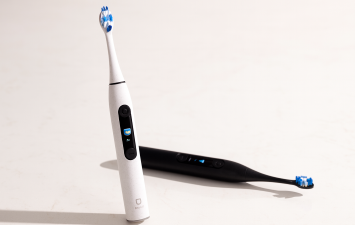
How to Switch from Manual to Electric Brush
Thinking of switching from a manual to an electric toothbrush?
Does Brushing Longer Mean Cleaner Teeth?
Many people believe that brushing longer automatically means a cleaner mouth—but is that true?
How to Brush Smarter, Not Harder
Brushing your teeth harder doesn’t mean brushing them better. In fact, it might be harming your gums and enamel.
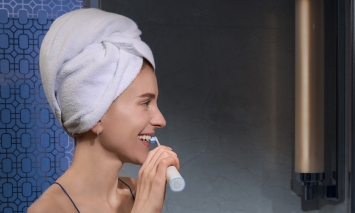
How to Make Your Diet Protect Your Teeth
Maintaining a bright, healthy smile isn’t just about brushing and flossing — your diet plays a huge role in oral health. The foods and drinks you consume every day can either help protect your teeth or contribute to decay and gum disease.
